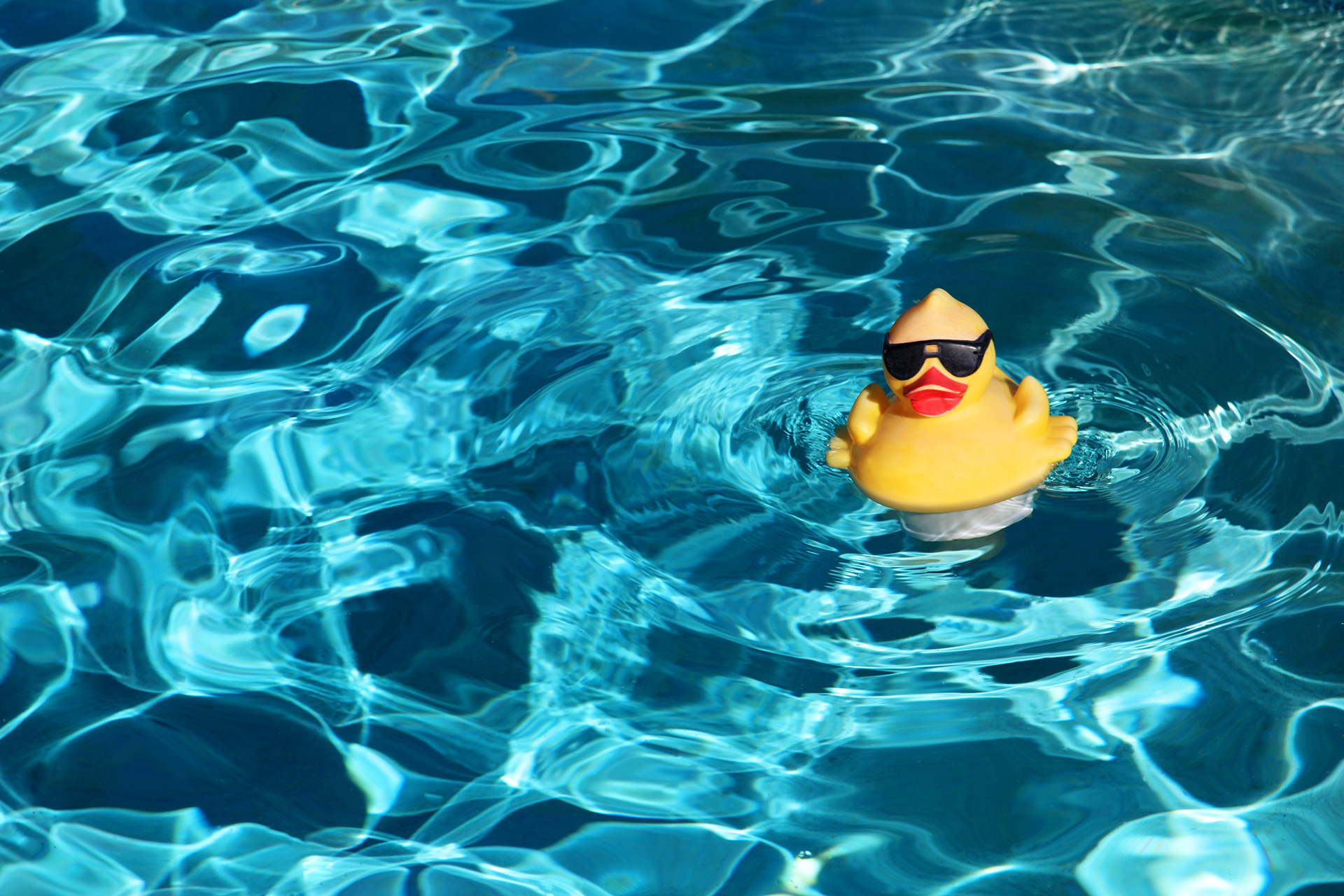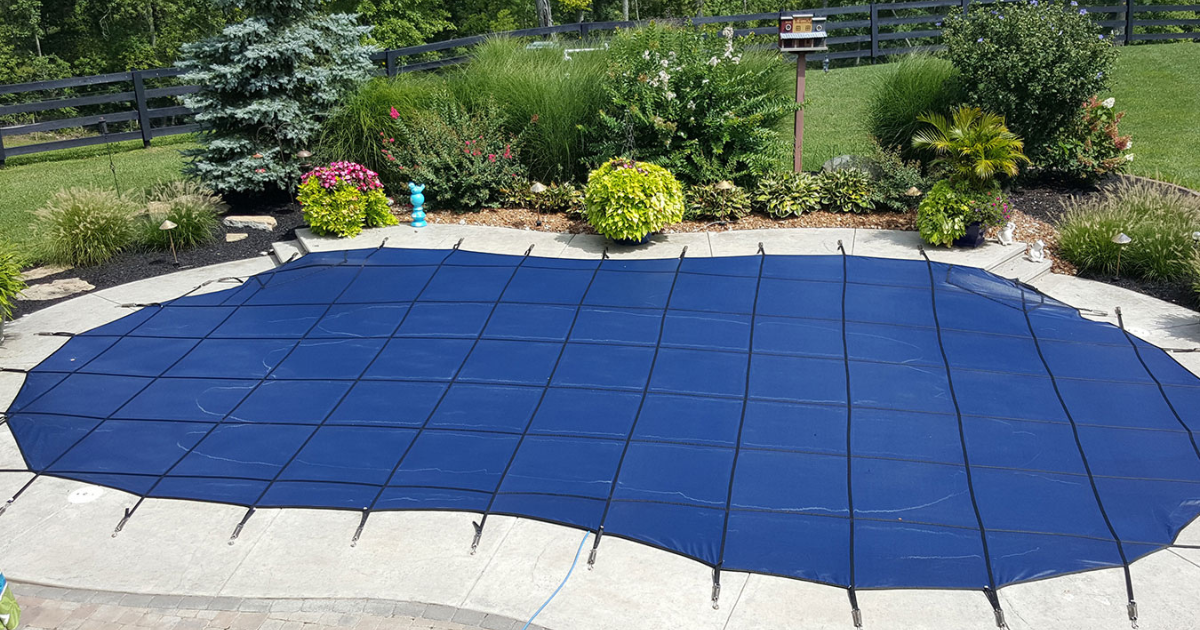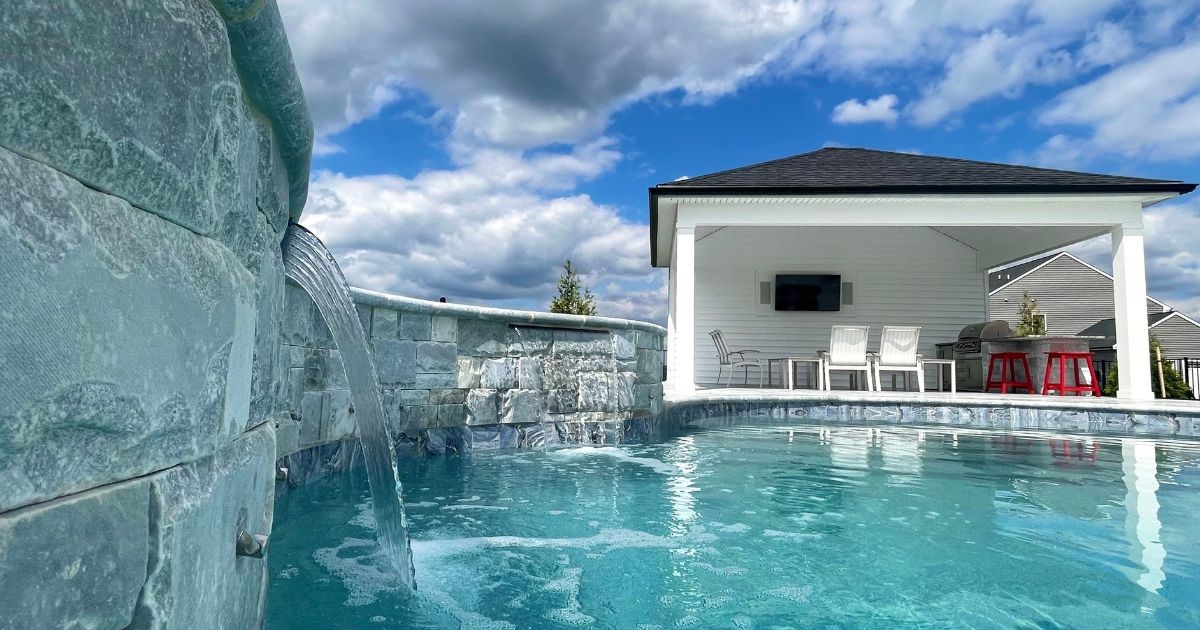The leaves are turning, the temperature is dropping—it's time to prepare your aquatic oasis for…

Pool Safety Tips to Protect Your Friends and Family
With the Coronavirus canceling your travel plans and social gatherings of any size, you’re spending a lot of time at home. And by this time, you have probably already opened your inground pool, or you’ll open it soon. Whether you’re planning a staycation or just ready to go swimming again, it’s a good time to review some pool safety tips.
1. Pool Safety Fence
It’s the law in Maryland that if you have an inground pool, you must have a pool safety fence. The fence must be at least 48” tall, with self-locking gates. There should not be any opening in the fence that an animal or child could squeeze through, and there should be no way to get a foothold from the outside to make it easy to climb. There is also a 2” maximum between the ground and the bottom of the fence. Some counties have more stringent requirements, so you may want to check your local code.
Take a stroll around to examine your pool safety fence from the inside and the outside. Make any repairs as needed.
2. Automatic Pool Safety Covers
Automatic pool safety covers are the ultimate in pool safety. If you cover the pool when it’s not in use, it prevents anyone from falling in, and prevents pets from falling in, as well. Automatic pool safety covers open and close with the touch of a button, so they’re easy to use.
We would be happy to answer any questions you may have. If you decide an automatic pool cover is right for you, we recommend Automatic Pool Covers, Inc.
3. Pool Safety Alarm
If you have a home security system, you can have a pool safety alarm installed as part of it – one alarm for when the patio door opens out onto the pool, and another motion sensor alarm if someone is in the pool. You can also add a pool safety alarm in these locations yourself.
In this way, you know if someone or something is accessing the pool when they are not supposed to be there. This is another great way to prevent an accidental drowning.
4. CPR and First Aid Training
Pool safety 101 dictates that if you own an inground pool, at least one family member should be trained in CPR and first aid. In this way, you are prepared to help someone until EMS can arrive. The American Red Cross schedules classes frequently throughout Maryland. And even if you don’t own a pool, this is a good skill to have.
5. Teach Your Children How to Swim
This seems to be a no brainer, but make sure you teach your children how to swim. Register them for Red Cross certified swim classes. These may be group classes at a local pool, or you can hire a certified swim instructor to come give private lessons in your home. The important thing is that your children have the swimming skills they need to be safe.
6. Safety in Numbers
Never let your kids swim in the pool without adult supervision. If you have a teenager, or a babysitter, make sure that when they are supervising younger kids, they know not to be on their phone the entire time.
And as an adult, even you should let someone know if you’re going to go out and swim a few laps, or lounge in the pool. There truly is safety in numbers.
Having an inground swimming pool is both a pleasure, and a responsibility. For more pool safety tips and the statistics that make pool safety important, you can visit Pool Safely, a national public education campaign.




